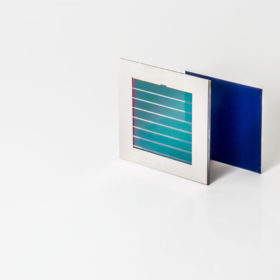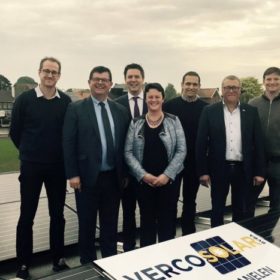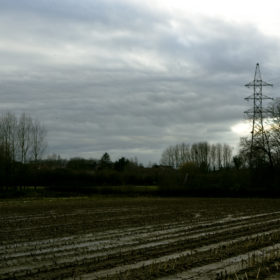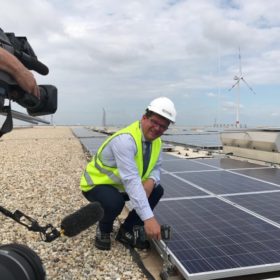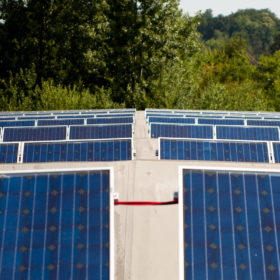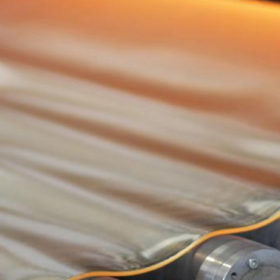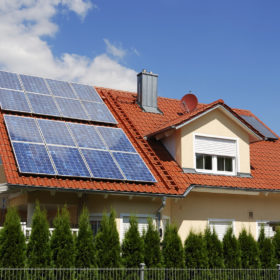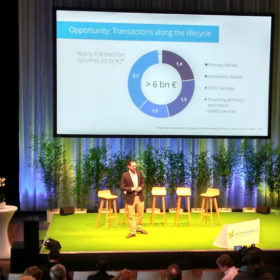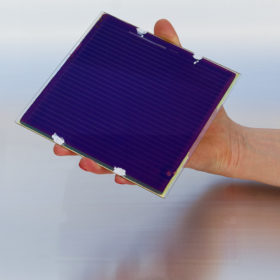Imec hits 23.9% efficiency on 4cm² tandem perovskite/silicon module
Belgian research institute Imec has achieved a conversion efficiency of 23.9% on a perovskite/silicon tandem module measuring 4 square centimeters. This efficiency level, according to Imec, represents the first time such a stacked configuration has outperformed a standalone silicon solar cell.
Belgian region of Flanders plans fiscal incentive for community solar and wind projects
The Minister of Energy of the Flanders hopes that another 6.4 million solar modules can be installed in the region under his mandate until 2020.
Belgium: Wallonia’s PV system owners to pay grid-fee starting from 2020
The energy regulator of the Belgian French-speaking region has announced the grid-fee will come into force in 2020, and not in 2019 as previously planned. PV systems operators are expected to pay an annual fee ranging from €330 to €560.
Belgian region of Flanders sees first MW-sized PV project come online after revision of incentive program in 2013
A 2.2 MW rooftop PV array was installed on Nike’s distribution center in Ham. The facility will cover up to 15% of the building’s energy needs.
Belgium: Flanders sees new PV installations almost double so far this year
Once a leading solar market, the Belgian macro-region of Flanders keeps showing signs of robust growth in new installations in the first five months of this year, after installing 103 MW of solar in 2016.
Belgian solar glass maker Ducatt files for insolvency
Ducatt had to start insolvency proceedings due to the insolvency of German solar module manufacturer SolarWorld. Around 50% of Ducatt’s revenue came from orders placed by SolarWorld, as reported by local media.
Belgium: researchers say solar-plus-storage is far from becoming economically viable
According to a scientific paper from the Université libre de Bruxelles, even a further reduction in storage prices may not be sufficient to make solar-plus-storage attractive in the Belgian market.
Ecosummit 2017: Eneco Group to invest in Next Kraftwerke
Dutch energy company Eneco Group announced its acquisition of a 34% stake in Next Kraftwerke, a German company operating one of Europe’s largest virtual power plant networks. The investment was announced at the Ecosummit cleantech event in Berlin today.
Imec claims 22.8% efficiency for bifacial n-type PERT solar cell
The Belgian research institute has developed a bifacial n-PERT solar cell with a conversion efficiency of 22.8%. Imec researchers claim this cell has the potential for a cost-of-ownership at module level of less than $0.30/W.
Imec’s perovskite-based PV module reaches 12.4% efficiency
The Belgian research institute has improved the efficiency of its 4x4cm² perovskite module by 1.1%.
